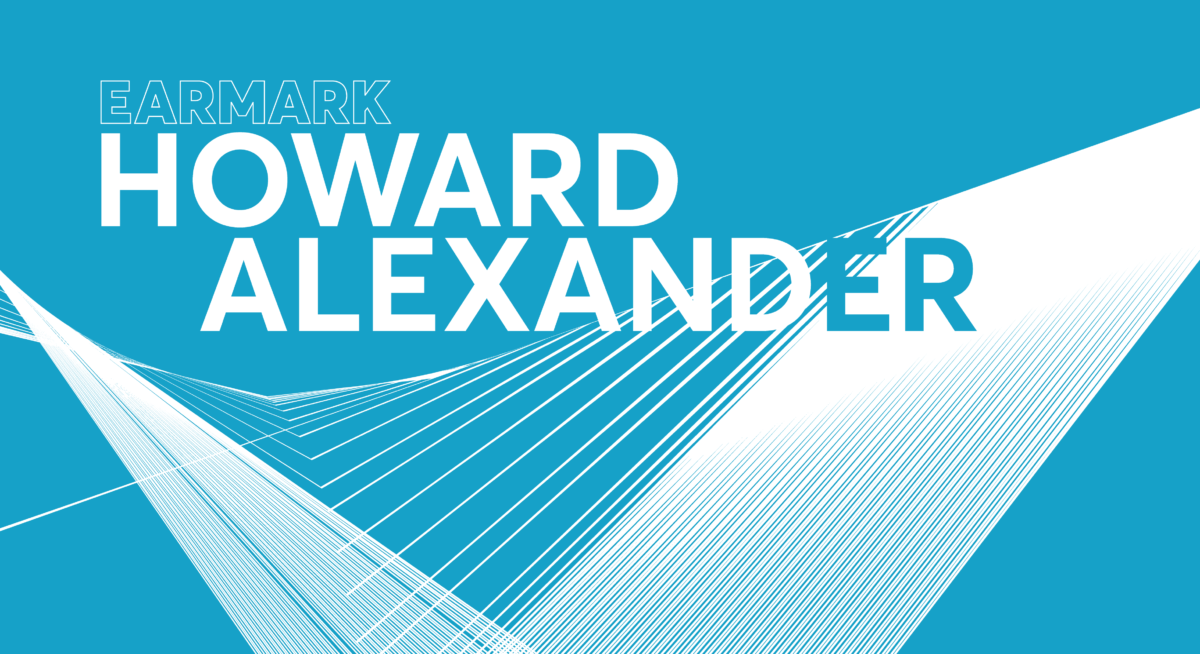In this Earmark installment, we hear from composer Howard Alexander about the audible and inaudible influences on one’s music, life-affirming moments as a listener, and the bucolic settings that can inspire.
CMC: What got you excited about music at a young age?
Howard Alexander: Both my parents were music teachers, so beginning piano at age four was probably not so unusual. My father loved Mozart and British band music. My mother loved Bach and Beethoven.
The Holst First Suite for Military Band remains one of my favourite pieces, as does the Reginald Kell recording of the Weber Grand Duo for clarinet and piano. When I was 12, I was absolutely astounded and mesmerized by a performance of Alban Berg’s Lyric Suite at the local Columbia Artists Concert Series. Who knew music could sound like that? My interest in composing was born.
CMC: What have you been listening to lately? Does any of this make its way into your music?
HA: I am now an omnivore when it comes to listening to music. My wife, Deborah Dunleavy, who was a recording artist for children and is now an internationally recognized storyteller, insisted on frequently listening to jazz. It’s not so bad. In no particular order, Chick Corea, Chet Baker, Stacey Kent, and Phil Dwyer are favourites in our house. And then there is always Allanah Myles and Boston!
I have had excellent composition teachers starting with Graham George and David Keane at Queen’s, and John Weinzweig at University of Toronto. Many years ago I had the opportunity to spend several hours listening to Murray Schafer talk about his musical philosophy. He had a profound effect on how I think about sound, although I doubt one could hear his influence in my compositions.
Bernstein, on the other hand, is an audible influence. How could anyone resist those intricate, dancing rhythms and those soaring melodic inventions? I, sometimes unconsciously, find his influences in my pieces. I just wish I could have written Chichester Psalms.
There are so many fine young Canadian composers who constantly provide inspiration. Kelly-Marie Murphy’s Dark Energy for String Quartet is wonderful. I enjoy Christine Donkin’s choral music. Nicole Lizée’s work always challenges and expands my creative horizons.
CMC: Tell me about a work of yours that you are particularly proud of.
HA: In 2015 Deborah (my wife) received a Canada Council grant to research and create an extended work for storyteller and music, a storytelling oratorio. Fortunately, she hired me to be the composer. Deborah did the research and wrote a truly epic poem about the life of Isobel Gunn, an Orkney lass who, in 1805, dresses as a boy and signs on with the Hudson Bay Company.
I then went to work creating the music. There were challenges: the music had to be portable for performance. Sometimes the music had to be timed with the storyteller, and at others times provide a rest. Above all, the music had to support the many different moods of the story. When I had written a lot, we got together to fine tune the timing and the dramatic intent and create the finished product. Yes, we are still married.
The result is Isobel Gunn, a 48 minute work which Deborah has performed nine times in Canada. I wrote the orchestral score in Finale and then recorded it. The music is continuous while Deborah performs live. Deborah will perform the work in Scotland at the Scottish International Storytelling Festival in Edinburgh in October 2019.
As we plan our next big collaboration, I sit on the porch of our home in the countryside of Eastern Ontario, looking out over the neighboring fields, and dream of the music I want to hear, the music I have yet to write.

